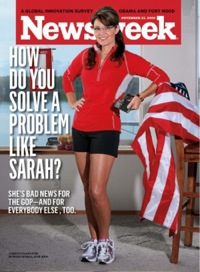[Every Friday, Mark Coddington sums up the week’s top stories about the future of news and the debates that grew up around them. —Josh]
![]() The FTC’s ideas for journalism: The U.S. Federal Trade Commission has spent much of the last year listening to suggestions about how they might change antitrust, copyright, and tax laws in order to create the best possible climate for good journalism, and this weekend it posted its “discussion draft” of policy proposals to “support the reinvention of journalism.” It’s a 47-page document, so here’s a quick summary of their ideas:
The FTC’s ideas for journalism: The U.S. Federal Trade Commission has spent much of the last year listening to suggestions about how they might change antitrust, copyright, and tax laws in order to create the best possible climate for good journalism, and this weekend it posted its “discussion draft” of policy proposals to “support the reinvention of journalism.” It’s a 47-page document, so here’s a quick summary of their ideas:
— Expand copyright law to protect news content against online aggregators, including “hot news” legislation, further limits to fair use, and mandatory content licenses.
— Allow antitrust exemptions for news organizations to put up paywalls together and develop a unified system to limit online aggregators.
 — Enact direct or indirect government subsidies through a variety of possible means, including a journalism AmeriCorps, more CPB funding, a national local news fund, tax credits to news orgs for employing journalists, university investigative journalism grants, and newspaper and magazine postal subsidies. These subsidies could be paid for through taxes on broadcast spectrum, consumer electronics, advertising, or ISP-cell phone bills.
— Enact direct or indirect government subsidies through a variety of possible means, including a journalism AmeriCorps, more CPB funding, a national local news fund, tax credits to news orgs for employing journalists, university investigative journalism grants, and newspaper and magazine postal subsidies. These subsidies could be paid for through taxes on broadcast spectrum, consumer electronics, advertising, or ISP-cell phone bills.
— Tax code changes to make it easier for news organizations to gain tax-exempt status.
— Pass various FOIA-related laws to make government data easier to access and search.
It’s worth noting that the FTC isn’t explicitly endorsing these proposals; the draft reads more as a list of possible proposals that might be worth exploring further. Still, j-prof and new media pundit Jeff Jarvis saw a perspective of old-media protectionism running through the draft, as he tore it apart point by point. The FTC is defining journalism through established news organizations and looking to prop them up instead of supporting visionary startups, he wrote. “If the FTC truly wanted to reinvent journalism, the agency would instead align itself with journalism’s disruptors. But there’s none of that here.”
Jarvis’ charges were seconded by two newspapermen, the Washington Examiner’s Mark Tapscott and the Los Angeles Times’ Andrew Malcolm, who likened the proposals to the government trying to save the auto industry by reviving the gas guzzlers of the 1960s. Steve Buttry of the new Washington news site TBD chimed in, too, homing in on the assertion that newspapers provide the overwhelming majority of our original news.
Free Press’ Josh Stearns responded by cautioning against “throwing the baby out with the bath water,” noting a few of things that he liked about the FTC’s proposals. And at the Huffington Post, Alex Howard praised the FTC’s open-government proposals. NYU j-prof Jay Rosen chipped in his own tweet-length proposal for the FTC: “Subsidize universal broadband; fight for sensible net neutrality.”
Steve Jobs’ proposal for paid news: The folks from the Wall Street Journal’s All Things Digital interviewed Apple chief Steve Jobs on stage this week as part of their D8 conference, and Jobs had a few words for the news industry: Yes, he wants to help save journalism, because, as he put it, “I don’t want to see us descend into a nation of bloggers.” But if they’re going to survive, news organizations should be more aggressive about getting people to pay for content, Jobs said, like Apple did in helping raise e-book prices earlier this year.
As it turned out, there was something for everybody to pick apart in that exchange: Ex-Saloner and blogging historian Scott Rosenberg took issue with Jobs’ “nation of bloggers” jab, and Steve Safran of the local-news blog Lost Remote said that what Jobs really wants to save is paid, professional journalism. GigaOm’s Mathew Ingram argued that an “iTunes for news” model that Jobs proposed might benefit Jobs, but probably won’t work for news outlets. And here at the Lab, Laura McGann pointed out a statement Jobs made elsewhere in the interview that rejected Apple app applicants (sorry, couldn’t resist) should simply resubmit their apps, unchanged.
Meanwhile, we got another piece about Apple’s app censorship from Advertising Age’s Simon Dumenco, and a few other interesting pieces of app news: Statistics showing just how big game apps are on the iPhone and iPad (though content apps aren’t doing bad on the iPad), lessons for iPad news apps from Hacks/Hackers’ recent app-creating binge, and a cool iPad news reader designed by Stanford students.
To link or not to link?: Author Nicholas Carr, who’s about to release a book about how the Internet is hurting our ability to think, highlighting one of the points from that book in a blog post this weekend: The link, Carr argues, hurts our ability to concentrate and follow an argument, and in some cases we may be better off without them. He calls links a high-tech version of the footnote, like little distracting textual gnats buzzing around our heads. “Even if you don’t click on a link, your eyes notice it, and your frontal cortex has to fire up a bunch of neurons to decide whether to click or not. You may not notice the little extra cognitive load placed on your brain, but it’s there and it matters.” Carr approvingly noted a couple of experiments in leaving links to the bottom of articles.
ReadWriteWeb’s Marshall Kirkpatrick responded with a thoughtful look at the purpose of links, wondering if they really might be better off at the end of articles, and the Columbia Journalism Review’s Ryan Chittum was sympathetic to Carr’s point as well: “It’s not a trivial question to ask what the Internet is doing to our attention spans,” he wrote. “I know mine, for one, is shot to hell.”
Carr, who’s had his run-ins with the Internet cognoscenti in the past, predictably caught some flak for his post too, including from Mathew Ingram, who argued that links are at least as much an intellectual discipline for the writer as the reader. The Scholarly Kitchen’s Kent Anderson noted that links are part of a long academic tradition that includes footnotes and inline citations: “Do they distract? Of course they do. … But it’s distraction through addition, if done well.” And author Scott Berkun brings up a few variables that others missed, including the skill of the author, web design, and the “open in new tab” function.
(Here’s Carr’s blog post.)
‘The Twitter of news’: The link-sharing site Digg gave a preview of its new version, which will implement some Twitter-like features and emphasize the news links that the people you follow have shared, rather than just the top overall links. The net effect is an attempt to become, as GigaOm’s Liz Gannes put it, “the Twitter of news.” That, of course, raises the question: “Isn’t Twitter already the Twitter of news?” But Digg’s advantage, founder Kevin Rose says, is that it does away with the status updates and Justin Bieber memes and gives you purely socially powered links and news.
Tech pioneer Dave Winer was intrigued by the concept, and The Next Web’s Zee Kane lauded Digg for integrating more deeply with Twitter. Alexis Ohanian, co-founder of Reddit, a competitor of Digg’s, bashed Rose for “just re-implementing features from other websites,” and TechCrunch’s Michael Arrington knocked both Rose and Ohanian down a peg in response.
 Bidders for Newsweek: Wednesday was The Washington Post Co.’s deadline for formal expressions of interest in buying Newsweek, and it received three offers: OpenGate Capital, a private equity firm that bought TV Guide for $1 in 2008; hedge fund manager and failed Chicago Sun-Times bidder Thane Ritchie; and conservative magazine and website Newsmax. On Twitter, Jeff Jarvis called the bidders “tacky” and wondered whether Newsweek would be better off dead.
Bidders for Newsweek: Wednesday was The Washington Post Co.’s deadline for formal expressions of interest in buying Newsweek, and it received three offers: OpenGate Capital, a private equity firm that bought TV Guide for $1 in 2008; hedge fund manager and failed Chicago Sun-Times bidder Thane Ritchie; and conservative magazine and website Newsmax. On Twitter, Jeff Jarvis called the bidders “tacky” and wondered whether Newsweek would be better off dead.
Earlier in the week, The New York Times’ David Carr offered an explanation for why Newsweek and other magazines seem to be worth so little to potential buyers: “In the current digital news ecosystem, having ‘week’ in your title is anachronistic in the extreme, what an investor would call negative equity.” At its Tumblr blog, Newsweek responded by arguing that while everyone seems to have the perfect idea of what Newsweek should have done, no one can change the simple business reality that Newsweek is no longer alone in its niche for readers and advertisers.
Reading roundup: A couple of updates on stories from last week, plus a bunch of interesting articles and resources.
— There wasn’t much new said in the continuing argument over Facebook and privacy, but Facebook founder Mark Zuckerberg gave a couple more interviews defending its privacy policy and last week’s changes to NPR, All Things Digital and Wired, the latter of which included the revelation that Zuckerberg donated to Diaspora, Facebook’s open-source startup competitor. Wired’s Fred Vogelstein also defended Facebook’s privacy stance, and Jay Rosen took him to task for it.
— An addendum to last week’s Publish2 News Exchange launch: Publish2’s Ryan Sholin told the Lab’s Megan Garber that it only intends to disrupt the AP, not kill it. The exchange is aimed at the content distribution side of the AP, not the production end, he said. Poynter’s Rick Edmonds gave some more explanation of Publish2’s plans.
— The New York Times announced it will host Nate Silver’s political polling blog FiveThirtyEight, one of the web’s top operations at the intersection of data and journalism. Yahoo News’ Michael Calderone examined the fact that Silver’s been open about his liberal political views and asks how that will work out at the Times.
— Several smart, thought-provoking analyses here: Journalism researcher Michele McLellan surveyed online local news publishers, news business expert Alan Mutter looked at Yahoo’s hints at a challenge to local newspapers, search guru Danny Sullivan examined a case of traditional media stealing his blog’s story; and media analyst Frederic Filloux explained why online advertising is so lousy.
— Finally, a “why” and a “how” for a couple of aspects of digital journalism: MediaShift’s Roland LeGrand gives journalists the reasons they should learn computer programming, and Poynter’s Jeremy Caplan has a great list of tips for crowdsourcing in journalism.